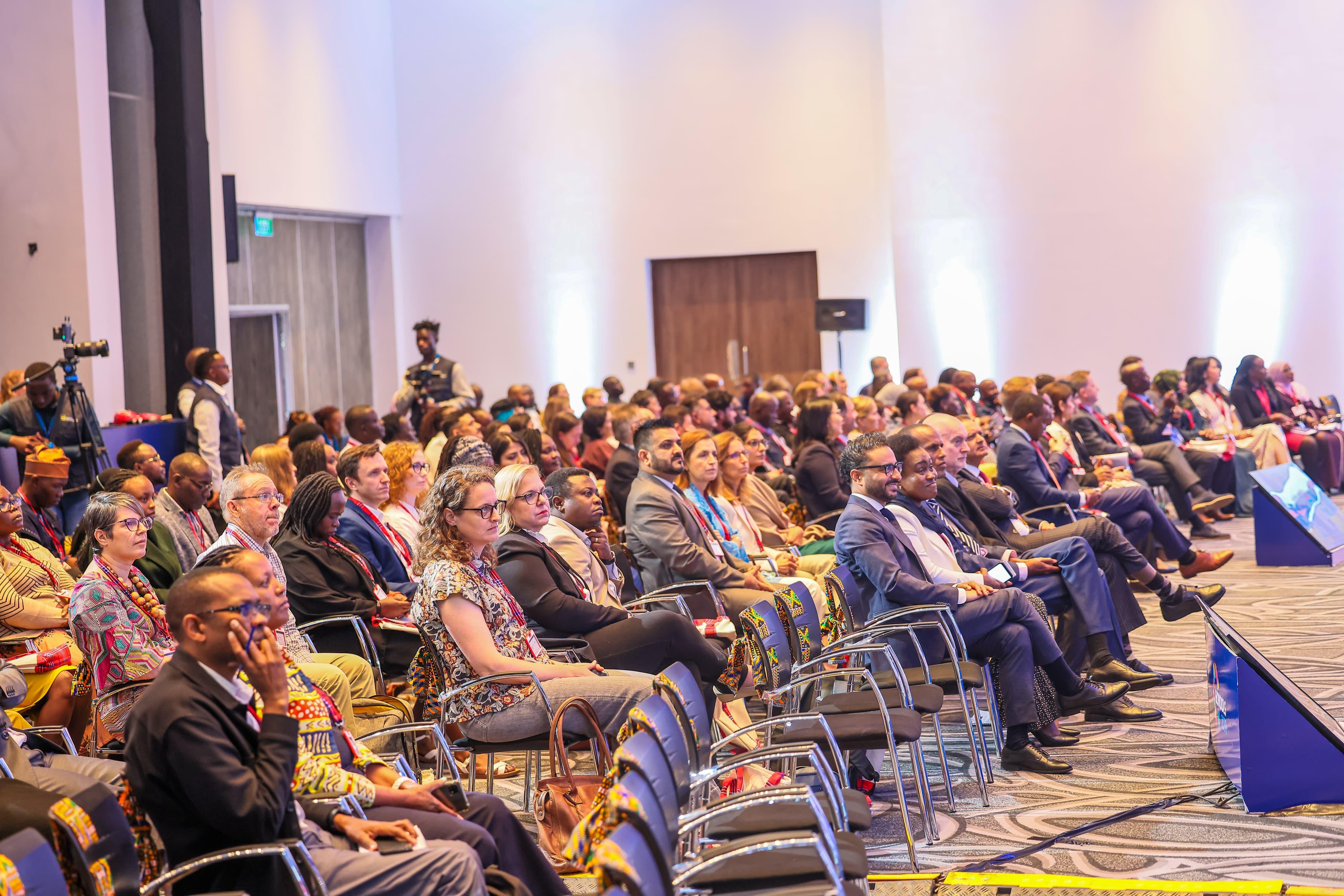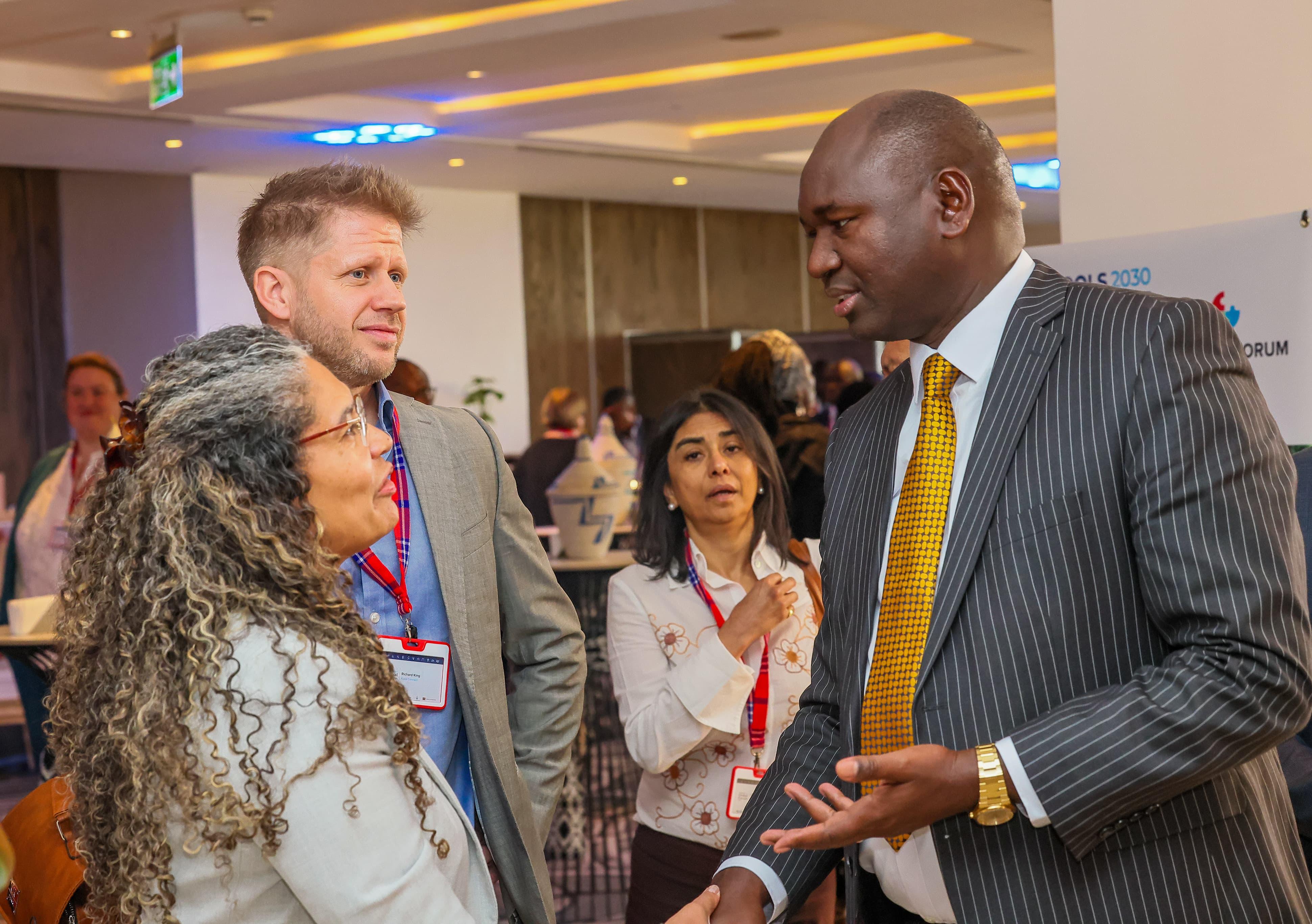 Participants during the global education forum held in Nairobi. /HANDOUT
Participants during the global education forum held in Nairobi. /HANDOUT
More than 200 educationists from over 30 countries have gathered in Nairobi for a landmark forum focused on the future of teaching and education in the era of Artificial Intelligence (AI) and rapid technological change.
The three-day workshop, jointly organised by the Ministry of Education and the Aga Khan Foundation, brings together a diverse group of participants, including teachers, government officials, policymakers, human rights groups, development partners, and other stakeholders.
The event aims to explore how teachers and schools can play a central role in addressing complex learning and education challenges.
Education Principal Secretary Julius Bitok, who officially opened the forum, underscored Kenya’s pride in hosting this year’s event, which is dedicated to “reimagining the role of teachers as drivers of innovation, equity, and learning transformation.”
“Teachers are not just implementers of the curriculum. They are mentors, innovators, and trusted partners in transforming education systems,” Bitok said.
He reaffirmed Kenya’s commitment to investing in teacher training, professional growth, and digital tools to ensure that no learner is left behind.
 Education Principal Secretary Julius Bitok interacts with participants during a global education forum in Nairobi on June 3, 2025.
Education Principal Secretary Julius Bitok interacts with participants during a global education forum in Nairobi on June 3, 2025.The PS highlighted ongoing education reforms in the country, including the piloting of the Kenya Education Management Information System (KEMIS), which is set to begin in July ahead of a full rollout in September.
“KEMIS marks a critical milestone in ensuring that data-driven decision-making becomes the cornerstone of education planning and service delivery in Kenya,” Bitok stated.
The new KEMIS platform will replace the current NEMIS system, consolidating student data across all learning levels—from early childhood development education (ECDE) to university—into a single, integrated system.
This move is expected to improve the accuracy of resource allocation, enhance transparency, and prevent the manipulation of capitation through ghost schools or inflated enrollments.
The system will also feature a mobile application, giving parents and stakeholders real-time access to student and school data.
This year’s forum theme, “How Might Teachers and Schools Be the Partners of Choice in Solving Complex Learning and Education Challenges?”, places teachers at the heart of efforts to address issues such as climate change, conflict, digital disruption, inequality, and inclusion.
PS Bitok noted that the ongoing reforms also include integrating climate resilience and disaster preparedness into teacher education, embedding environmental sustainability into curriculum-based co-curricular activities, and providing special focus to marginalised learners, including girls and children with disabilities.
The forum coincides with the 50th anniversary of the Aga Khan Foundation’s work in Kenya, marking decades of collaboration in education, health, civil society, and rural development.















